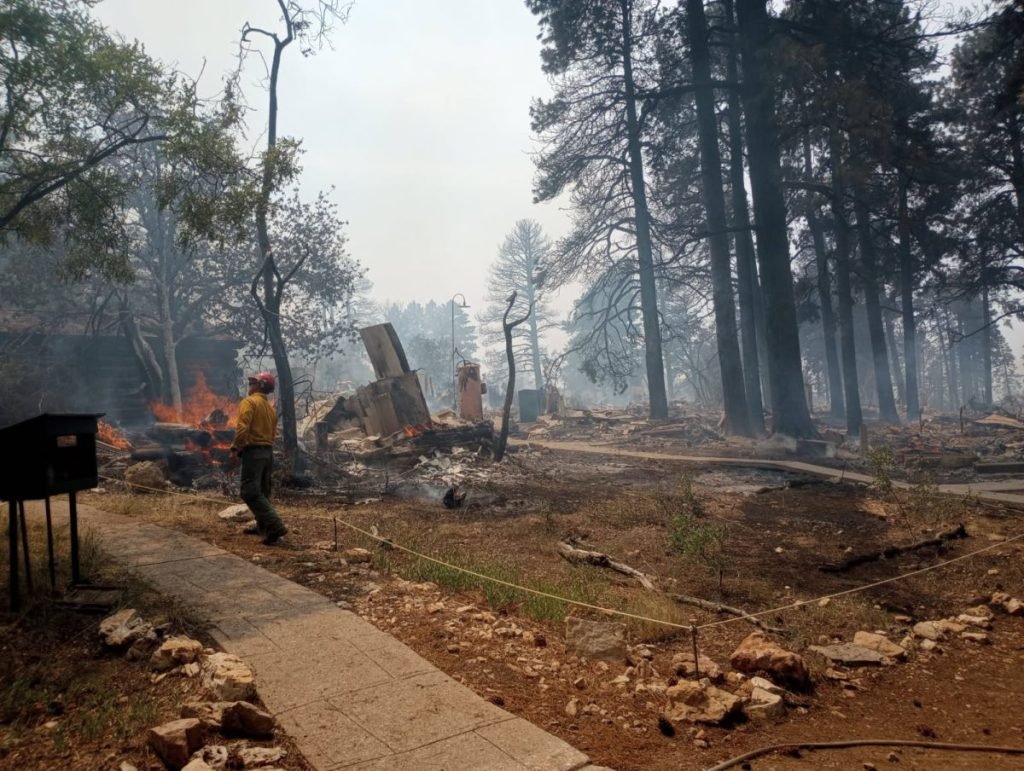Travel Market Insights
Airbnb Host Experience: What Happens When Work Enters Your Home

What happens when your home becomes your workplace? This question often arises when analyzing how accommodation-sharing platforms like Airbnb continue to blur the lines between personal space and professional service. In the hospitality-driven gig economy, the rise of at-home hosting has redefined business models and shifted the boundaries between work and family life.
This article explores recent research on the human experience behind the Airbnb model, revealing how freedom and flexibility often collide with the emotional cost of turning one’s ‘home’ into a hotel. Drawing on surveys and interview data, we suggest evidence-based recommendations to help platforms and hosts co-create more sustainable and supportive hosting environments.
The Human Cost of the Gig Economy
What does it mean to host strangers in your home for a living? How does this affect your personal life; not just practically but also psychologically?
These were the central questions explored in the article “Work-family Integration and Segmentation in the Gig Economy: An Exploratory Study on Airbnb Hosts’ Experiences” by de Janasz, Kim, Schneer, Beutell and Wong. At a time when gig work is becoming more common and domestic, this research offers a timely and much-needed lens on the human side of the platform economy – often celebrated for offering autonomy and a break from traditional job structures.
The study provides an important reminder that freedom comes with trade-offs, especially when your home doubles up as your workplace. The reality behind the “be your own boss” narrative is far more complex for Airbnb-style hosts. Hosting means constantly juggling the roles of business owner and private resident, balancing warm hospitality with personal boundaries and managing the emotional demands of being available around the clock.
In a survey of 136 Airbnb hosts, we examined how the emotional and social landscape of hosting affects well-being, family life and the overall desire to continue hosting. We found a growing disconnect between the image of the happy, self-directed host versus the reality of individuals coping with blurred boundaries and a lack of support.
Airbnb Hosting Challenges
Drawing on ‘boundary theory’, (a classification model based on the management of boundaries between different life contexts, especially work and home), the authors examined how Airbnb hosts manage their work and personal lives, especially when their preferences for segmenting or integrating these spheres don’t align with the realities of gig hosting. Segmentors prefer to keep work and home strictly separate, while integrators are more comfortable blending the two.
The study focused on segmentation versus integration preferences and their effects on work-family conflict, satisfaction and intention to stay in the job of hosting. The sample included a variety of hosts; some offered non-shared accommodations (entire apartments or homes), while others hosted guests in their own living spaces, which is a striking reminder that work and life often occupy the same room in the gig economy.
What emerged was clear: hosts who preferred to keep work and family separate were more likely to experience higher levels of conflict in terms of work interfering with family and vice versa. This friction often translated into lower job and life satisfaction, as well as a diminished desire to continue hosting.
Misalignment as a Source of Stress
The research looked at the widely praised concept of flexibility in the gig economy. While it’s often held up as a benefit, flexibility isn’t always good, at least not for everyone. Its value depends on how well the job structure aligns with a person’s work and life. When there’s a mismatch, what’s sold as freedom can easily become strained.
Hosts inviting guests into shared home spaces faced significantly more boundary challenges than those in entirely separate units. The physical cohabitation amplified the psychological blurring of roles. There is something particularly unsettling about the idea of strangers in your kitchen while you’re trying to get your child ready for school or decompress after a long day. These are not just operational inconveniences; they strike at the heart of what home means.
Like many platforms, Airbnb promotes hosting as an easy way to earn money, but the reality is more complex. Hosts are evaluated by real-time guests, expected to respond to messages within an hour (no matter the time zone) and are penalized for cancellations, even when legitimate family emergencies arise.
Hosts’ sense of privacy and routine are continually disrupted by the platform’s expectations. Airbnb hosting is embedded in the home so there’s little room to escape. Even for integrators who are more comfortable with work-life blending, the emotional labor of hosting and the platform’s constant demands can take its toll.
How Support Makes the Difference
The good news is that not all hosts experience these challenges equally. Our interviewees confirmed that social support (from friends, family, other hosts, even loyal guests) played a decisive protective role. Those who had regular support networks were less likely to feel isolated and more likely to report well-being, even under pressure. Online labor platforms often assume that flexibility alone is enough. However, our findings suggest that connection, not just autonomy, is key to long-term host sustainability.
How Platforms Can Step Up
If hosting is to remain viable and human-centered, platforms like Airbnb need to shift from a self-service model to one of shared care. Here’s what that might look like.
- Peer networks with purpose: Create regional or topic-based online groups that are moderated and intentional. Airbnb could enable live chats, peer mentoring, e.g., “Ask Me Anything” sessions with seasoned hosts. Not just forums but real interaction.
- Mental health and wellness integration: Partner with wellness apps (e.g., Headspace, Calm) or invite resilience coaches to offer opt-in well-being support. Provide mindfulness check-ins or digital rest days to encourage self-care.
- Redefined ‘success’ metrics: Move beyond response speed and cancellations. Introduce recognition for consistency, hospitality warmth, or creative guest experiences that reflect emotional labor, not just algorithmic metrics.
- Job crafting: Highlight hosts who have reshaped their roles, e.g., by adding tours, breakfast experiences, or local activities. A “crafted host” badge or spotlight could inspire others and increase a sense of job purpose.
- Feedback loops: Introduce optional, reflective tools that allow hosts to log how they feel, what challenges they face and what support they need. Then feed that data into future platform features.
Host Tips for Protecting Your Well-being
While platform-level changes are crucial, hosts can also take measures to protect themselves against burnout and disconnection. Here are some evidence-based strategies from our findings.
- Be intentional with space: For those considering hosting, especially if they know they prefer to keep work and home separate, it’s worth thinking carefully about the setup. Hosting an individual unit, for example, with its entrance and minimal overlap with its own personal living space, can significantly reduce stress and keep boundaries intact.
- Join or build a host community: Look beyond Airbnb’s official channels. Many hosts benefit from private Facebook groups, WhatsApp circles, or informal local meetups to share struggles and tips.
- Set expectations upfront: Much tension can be avoided simply by making boundaries clear. Letting guests know about response hours, when shared spaces are accessible or when you might be unavailable can help protect your time and your well-being. Tools like auto-replies or partnering with a co-host in another time zone can ease the pressure to always be “on.”
- Add meaning to your work: Introduce small rituals: guest notes, cultural welcome baskets, or sharing local tips. These crafted touches can restore pride and connection in your hosting identity.
- Take stock of your well-being regularly: Use a simple weekly check-in: “Am I still enjoying this? Am I feeling isolated or fulfilled?” Treat your well-being as a KPI that is just as important as your response rate.
Rethinking Independent Hospitality Work
This study highlights the importance of fit in flexible gig work. Autonomy alone isn’t enough. What matters is how that independence intersects with spatial realities and emotional bandwidth. As more professionals enter the gig economy, either by choice or necessity, we need to understand what this work offers and what it costs.
For those of us in hospitality, education or policy-making, these insights reveal that behind every platform profile is a person navigating real tensions between work and life. This requires designing systems and support mechanisms that recognize those boundaries.
Hospitality has always been about people; platforms like Airbnb have extended that logic into our homes. But what happens when the host is left out of the hospitality equation? Our research suggests that autonomy without support creates strain. Host care seen as a shared responsibility between platforms and people can help preserve what’s beautiful about the peer-to-peer model without eroding the person at its center. Supporting hosts isn’t a luxury, it’s the foundation of a sustainable hospitality ecosystem.
Dr Sowon Kim – Associate Professor at EHL Hospitality Business School .
This article originally appeared on EHL Insights.
Travel Market Insights
Luxury, Credit Cards, Deals: Hotel Earnings Preview

Many analysts believe the major hotel groups are positioned to report steady, if unspectacular, growth in the second quarter, thanks to enjoying more tailwinds than headwinds.
In April, Hilton CEO Chris Nassetta predicted that travel demand would stabilize after the passage of President Trump’s tax and budget bill and summer negotiations over tariffs. In May, Marriott issued upbeat guidance for the year and assumed no U.S. recession would emerge.
Second-quarter results will show whether that optimism reflected confidence or wishful thinking. Earlier this year, revenue per available room (RevPAR) had been recovering but remained below 2019 peaks in several key markets and segments.
Reports we’ll be tracking this week: Hilton (Wednesday) and Wyndham (Thursday). Marriott, Hyatt, IHG, Choice, Accor, and others will roll out in the coming weeks.
Sources of Streng
Travel Market Insights
U.S. Visa Sticker Shock: New $250 ‘Integrity Fee’

Many travelers applying for U.S. tourist visas should be prepared to pay at least an additional $250 for a new “Integrity Fee.”
It’s part of the recent budget law and hasn’t been implemented yet, but the Department of Homeland Security is authorized to start charging this fiscal year. Starting in Fiscal Year 2026, which starts October 1, the Visa Integrity Fee will be adjusted annually for inflation.
It applies to travelers applying for non-immigrant visas, but people from the more than 40 Visa Waiver Program countries are not subject to the Visa Integrity Fee.
Travelers are eligible for reimbursement sometime after the visa expires as long as they don’t overstay the visa expiration date by more than five days or engage in unauthorized work.
“There is no timeline for implementation of the fee or direction as to how the fee will be collected and refunded,” according to the U.S. Travel Association.
One issue: It may discourage travelers from visiting the U.S. because they would have to shell out $250 and wonder if they would ever get the reimbursement.
“This fee, which will be at least $250 and comes on top of existing visa fees, adds an unnecessary financial barrier for international visitors,” said Erik Hansen, US Travel’s senior vice president, government relation affairs. “Among the top deterrents to visiting the U.S. are cost and visa wait times. And the new visa integrity fee increases the upfront costs of visiting the U.S. 144%, while doing nothing to lower interview wait times. Even if it is technically reimbursable, the added complexity and cost will discourage visitors.”
$24 I-94 Fee
That’s not all of the costly news for some international arrivals in the new law: The application fee for the I-94 arrival and departure record will rise to $24 from $6.
This fee will likely apply to travelers entering the U.S. by land, and to travelers from Visa Waiver Program countries.
This fee will also increase each year with inflation. Those exempt from filling out the form include American citizens, resident aliens, most Canadians, and aliens with immigration visas.
$40 ESTA Fee
The Electronic System for Travel Authorization (ESTA) fee is rising to $40 from the current $21. This will be paid by travelers who enter the U.S. from Visa Waiver Program countries at least through 2034.
These are the Visa Waiver Program countries, according to the U.S. Department of State:
Visa Wait Times and Cost
A family of four from Brazil, which is not a visa waiver program country, would pay $1,876 in visa fees under the new pay structure to travel to the U.S., an increase of more than $1,100, according to the trade association.
“At a time when the U.S. should be focused on attracting more international visitors, especially ahead of global events like the World Cup and Summer Olympics, burdening them with higher fees and reducing funding for Brand USA is counterproductive,” Hansen said. “We need smarter policies that enhance our global competitiveness, not ones that make the U.S. a less welcoming destination.”
Revenue Generators
Backers of the fees, however, see them as revenue generators.
For example, 20% of the I-94 fees are earmarked for the Land Border Inspection Fee account, 20% go to Customs & Border Protection, and 60% ends up in the Treasury Department general fund.
Regarding the ESTA fee, $10 goes to the Department of Homeland Security for cost recovery, $13 is funneled to the Treasury Department for Deficit Reduction, and $17 of the fee goes to the Travel Promotion Fund, which funds Brand USA.
The travel industry’s top event returns this fall.
September 16-18, 2025 – NEW YORK CITY
Travel Market Insights
Grand Canyon Fire Destroys Historic Lodge

Parts of the Grand Canyon National Park have been closed for the rest of the 2025 season as wildfires burn across the region, covering parts of one of the U.S.’s most visited natural landmarks in smoke.
The North Rim’s Dragon Bravo Fire exploded in size by 500 acres on the evening of July 12 as gusty winds, dry air and above-normal heat hit the area.
The fires destroyed the historic Grand Canyon Lodge and numerous surrounding cabins, according to the National Park Service.
Firefighters say there is currently zero containment.
“We are devastated by the loss of the Grand Canyon Lodge and historic buildings on the North Rim. All guests and staff are safe,” the lodge said in a statement, adding that it will be in touch with visitors who have future bookings.
Aerial footage released by the National Parks Service on Friday showed the remains of the famous lodge.
Grand Canyon Closures for the Rest of the Season
The cause of the fire was linked to lightning strikes, according to local reports.
Early damage assessments suggest that between 50 to 80 structures have been lost, including park administrative buildings and visitor facilities. No injuries or fatalities have been reported.
Fire fighting efforts continue around the threatened area.
But with fire activity still high and infrastructure at risk, officials say the North Rim will remain closed to all visitors for the rest of the year.
The South Rim, which receives the majority of visitor traffic, remains open.
Skift’s in-depth reporting on climate issues is made possible through the financial support of Intrepid Travel. This backing allows Skift to bring you high-quality journalism on one of the most important topics facing our planet today. Intrepid is not involved in any decisions made by Skift’s editorial team.
The travel industry’s top event returns this fall.
September 16-18, 2025 – NEW YORK CITY
-

 Mergers & Acquisitions1 week ago
Mergers & Acquisitions1 week agoHow Elon Musk’s rogue Grok chatbot became a cautionary AI tale
-

 Mergers & Acquisitions2 weeks ago
Mergers & Acquisitions2 weeks agoAmazon weighs further investment in Anthropic to deepen AI alliance
-

 Brand Stories2 weeks ago
Brand Stories2 weeks agoVoice AI Startup ElevenLabs Plans to Add Hubs Around the World
-

 Asia Travel Pulse2 weeks ago
Asia Travel Pulse2 weeks agoLooking For Adventure In Asia? Here Are 7 Epic Destinations You Need To Experience At Least Once – Zee News
-

 Mergers & Acquisitions2 weeks ago
Mergers & Acquisitions2 weeks agoUK crime agency arrests 4 people over cyber attacks on retailers
-

 AI in Travel2 weeks ago
AI in Travel2 weeks ago‘Will AI take my job?’ A trip to a Beijing fortune-telling bar to see what lies ahead | China
-

 Mergers & Acquisitions2 weeks ago
Mergers & Acquisitions2 weeks agoEU pushes ahead with AI code of practice
-

 Mergers & Acquisitions2 weeks ago
Mergers & Acquisitions2 weeks agoChatGPT — the last of the great romantics
-

 The Travel Revolution of Our Era1 month ago
The Travel Revolution of Our Era1 month agoCheQin.ai Redefines Hotel Booking with Zero-Commission Model
-

 Mergers & Acquisitions2 weeks ago
Mergers & Acquisitions2 weeks agoHumans must remain at the heart of the AI story

You must be logged in to post a comment Login